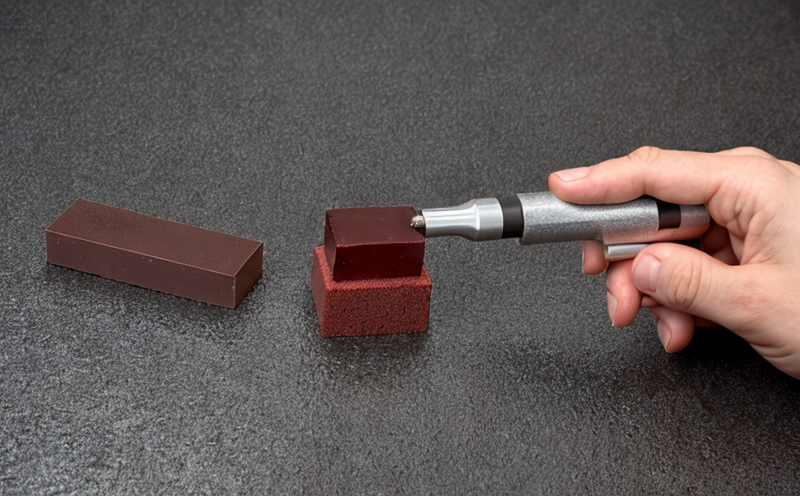Hardness testing for coatings used in aerospace
Hardness Testing for Coatings Used in Aerospace Unlocking the Secrets to Enhanced Performance and Safety
In the aerospace industry, coatings play a crucial role in protecting aircraft surfaces from extreme temperatures, corrosion, and wear. However, the effectiveness of these coatings depends on various factors, including their hardness. Hardness testing for coatings used in aerospace is a laboratory service that determines the ability of a coating to withstand scratches, abrasion, and impact without compromising its integrity. At Eurolab, we offer this essential service to help businesses ensure the reliability and performance of their coatings.
What is Hardness Testing for Coatings Used in Aerospace?
Hardness testing involves measuring the resistance of a material to deformation or penetration under various loads. For coatings used in aerospace, hardness testing assesses the ability of the coating to withstand scratches, abrasion, and impact without cracking or delaminating. This critical evaluation helps manufacturers and users understand the performance capabilities of their coatings and make informed decisions about their suitability for specific applications.
Why is Hardness Testing for Coatings Used in Aerospace Essential?
The aerospace industry demands high-performance coatings that can withstand extreme conditions. Hardness testing ensures that these coatings meet the required standards, reducing the risk of premature failure and ensuring safe operation. Some of the key reasons why hardness testing for coatings used in aerospace is essential include
Advantages of Using Hardness Testing for Coatings Used in Aerospace
Hardness testing offers numerous benefits to businesses involved in the aerospace industry. Here are some of the most significant advantages
Enhanced Performance Hardness testing ensures that coatings can withstand scratches, abrasion, and impact without compromising their integrity, leading to enhanced performance and reliability.
Improved Safety By identifying potential weaknesses in coatings, hardness testing helps reduce the risk of premature failure, ensuring safe operation and minimizing downtime.
Cost Savings Conducting regular hardness testing can help manufacturers identify areas where improvements are needed, reducing costs associated with coating failures and repairs.
Compliance with Industry Standards Hardness testing ensures that coatings meet industry standards, such as those set by the Federal Aviation Administration (FAA) and the European Aviation Safety Agency (EASA).
Increased Customer Confidence By demonstrating a commitment to quality and safety, businesses can increase customer confidence in their products and services.
Reduced Warranty Claims Regular hardness testing can help reduce warranty claims associated with coating failures, saving businesses time and money.
Key Benefits of Hardness Testing for Coatings Used in Aerospace
Here are some key benefits of hardness testing for coatings used in aerospace
Accurate Material Characterization Hardness testing provides accurate information about the material properties of coatings, enabling informed decisions about their suitability for specific applications.
Predictive Maintenance Regular hardness testing helps identify potential weaknesses in coatings, enabling predictive maintenance and reducing downtime.
Increased Efficiency By identifying areas where improvements are needed, businesses can optimize coating production processes, increasing efficiency and reducing costs.
Compliance with Regulatory Requirements Hardness testing ensures compliance with industry standards and regulatory requirements, minimizing the risk of non-compliance and associated penalties.
QA Frequently Asked Questions about Hardness Testing for Coatings Used in Aerospace
Q1 What types of coatings are typically tested using hardness testing?
A1 Hardness testing is commonly used to evaluate the performance of various types of coatings, including ceramic, polyurethane, epoxy, and acrylic-based coatings.
Q2 How do you determine the correct hardness testing method for a particular coating?
A2 At Eurolab, our experienced technicians use their expertise and knowledge of industry standards to select the most suitable hardness testing method for each specific coating type.
Q3 What are the typical hardness values for aerospace coatings?
A3 Typical hardness values for aerospace coatings range from 20-100 HRB (Rockwell B scale), depending on the specific application and material requirements.
Q4 Can you perform hardness testing on coatings with varying thicknesses?
A4 Yes, Eurolabs hardness testing services can accommodate coatings of various thicknesses, ensuring accurate results regardless of the coating layer.
Q5 How long does it take to obtain hardness test results?
A5 Our state-of-the-art laboratory equipment and experienced technicians enable us to provide fast turnaround times for hardness test results, typically within 24-48 hours.
Conclusion
Hardness testing for coatings used in aerospace is a critical evaluation process that ensures the reliability and performance of these materials. At Eurolab, we offer this essential service using our cutting-edge laboratory equipment and experienced technicians. By partnering with us, businesses can gain confidence in their coatings ability to withstand extreme conditions, reducing the risk of premature failure and ensuring safe operation.
Dont compromise on coating quality choose Eurolab for your hardness testing needs today!




